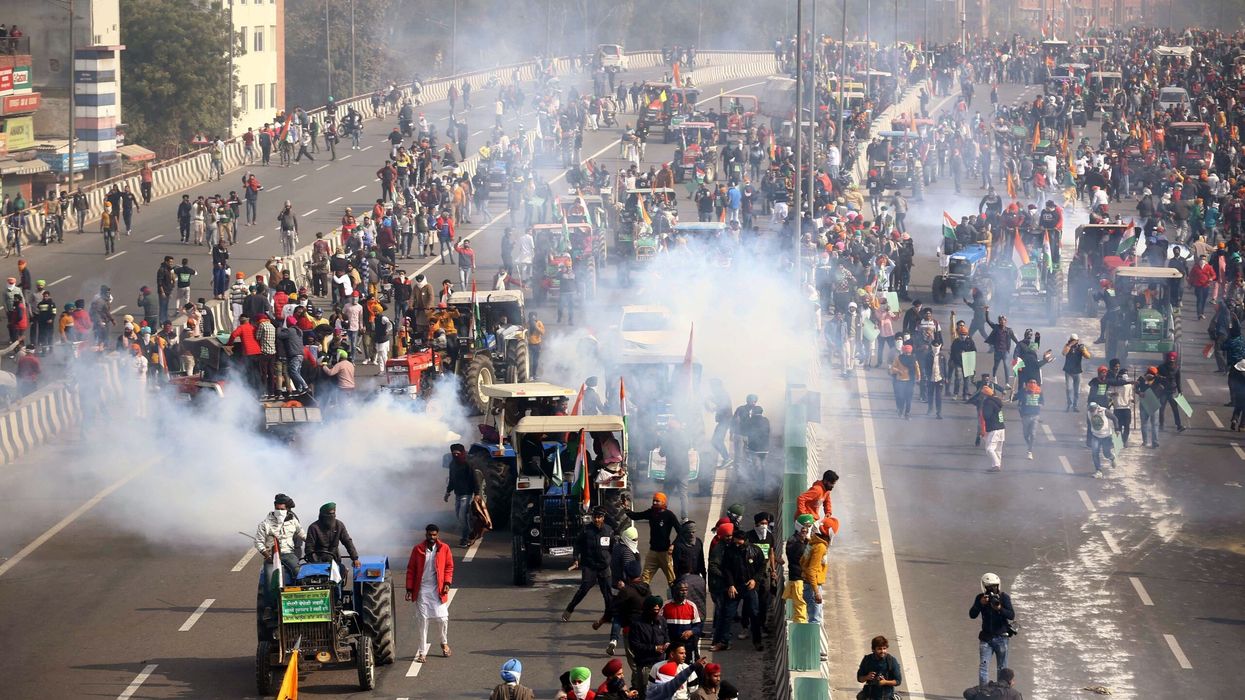Indian security forces deployed tear gas on Tuesday (13) to halt the advance of thousands of farmers who, after unsuccessful negotiations with the government were marching towards New Delhi to demand minimum prices for their crops.
Local broadcasters showed thick clouds of tear gas fired to disperse protesters near Ambala, some 200 kilometres (125 miles) north of the capital.
Police have set up a fearsome blockade of metal spikes, cement, and steel barricades on the highways from three surrounding states leading to the capital.
"Maximum numbers have been deployed," Ranjay Atrishya, assistant commissioner of Delhi Police, said.
Public gatherings of more than five people have been banned in the capital.
Farmers in India have political heft due to their sheer numbers, and the threat of renewed protests comes ahead of national elections likely to begin in April.
Two-thirds of India's 1.4 billion people draw their livelihood from agriculture, accounting for nearly a fifth of the country's GDP, according to government figures.
Indian broadcasters showed columns of hundreds of tractors moving towards the capital from the surrounding states of Punjab, Haryana, and Uttar Pradesh.
Police closed roads at Ghazipur on the outskirts of Delhi, using multiple lines of blockades. A first line of defence using razor wire was set up, then metal barriers, concrete blocks and finally police buses.
- 'Oppressing us' -
"We tried our best to solve our problems through discussions with the government, but they are insistent on oppressing us," Sarwan Singh Pandher, a top farmers' union official from Punjab, told reporters.
The farmers are demanding a law to fix a minimum price for their crops, besides a clutch of other concessions including waiving off loans.
"The government should listen to the farmers instead of using tear gas shells and guns against them," said Randeep Surjewala, an opposition Congress MP from Haryana, where many of the protesting farmers come from.
Farmers have called for a "Delhi Chalo", or "March to Delhi", echoing protests in January 2021 when farmers breached barricades and marched into the city on Republic Day.
Protests by farmers against agricultural reform bills in November 2020 lasted for more than a year, forming the biggest challenge to prime minister Narendra Modi's government since it came to power in 2014.
Tens of thousands of farmers then set up makeshift camps, with at least 700 people killed during the protests.
In November 2021, a year after protests began, Modi pushed through parliament the repeal of three contentious laws that farmers claimed would let private companies control the country's agriculture sector.
Thousands of Indian farmers die by suicide every year because of poverty, debt and crops affected by ever-more erratic weather patterns caused by climate change.
(AFP)




